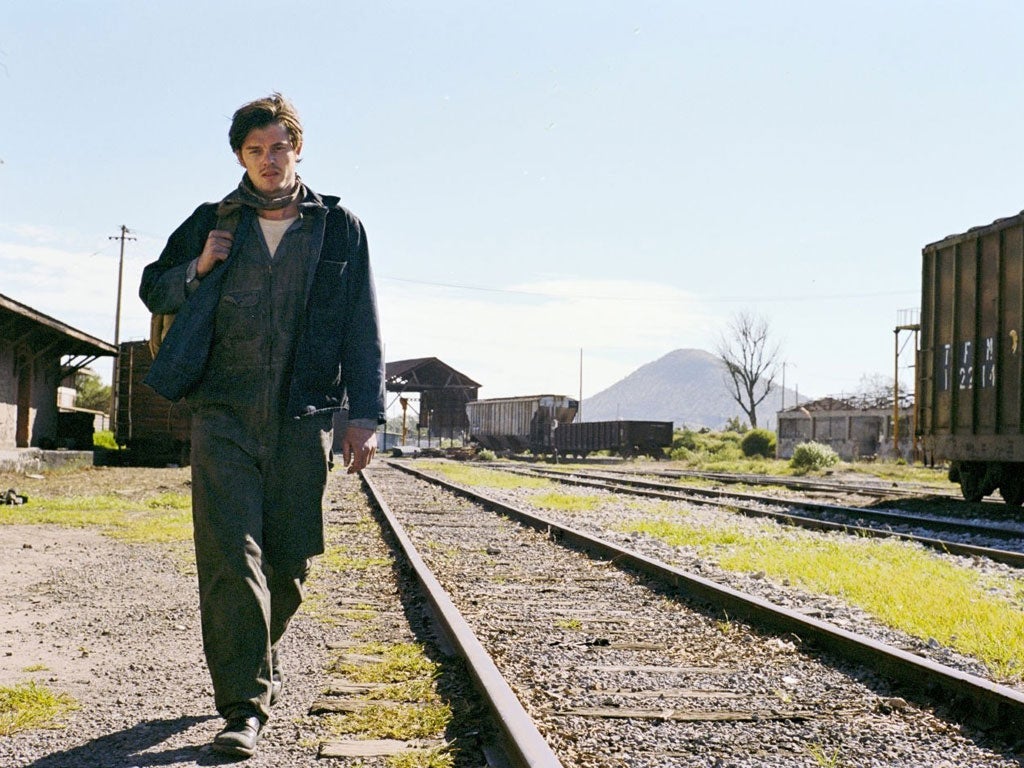Revealed: The unfilmables
They said these were the books that couldn't be filmed. They thought it could never happen. But, this season, they're coming to a big screen cinema near you...

Your support helps us to tell the story
From reproductive rights to climate change to Big Tech, The Independent is on the ground when the story is developing. Whether it's investigating the financials of Elon Musk's pro-Trump PAC or producing our latest documentary, 'The A Word', which shines a light on the American women fighting for reproductive rights, we know how important it is to parse out the facts from the messaging.
At such a critical moment in US history, we need reporters on the ground. Your donation allows us to keep sending journalists to speak to both sides of the story.
The Independent is trusted by Americans across the entire political spectrum. And unlike many other quality news outlets, we choose not to lock Americans out of our reporting and analysis with paywalls. We believe quality journalism should be available to everyone, paid for by those who can afford it.
Your support makes all the difference.Stand by, this autumn, for a slew of filmed versions of books generally regarded as unfilmable. Out next week is On the Road, from Jack Kerouac's novel written, in a single three-week burst, in April 1951. Its picaresque story of Sal Paradise, Dean Moriarty and their beat-generation pals is full of incident, but – as early critics pointed out – their lives hardly amount to a plot and their road is directionless. Francis Ford Coppola bought the film rights in 1980 but had to wait 30 years to find the right director in Walter (The Motorcycle Diaries) Salles.
Hot in its dusty wake is another fictional journey, Ang Lee's Life of Pi, from Yann Martel's Booker-winning novel, which tells how an Indian boy, Piscine Patel, survives a shipwreck that kills his family, and survives for 227 days in a small lifeboat with only a Bengal tiger, a hyena, a zebra and an orang-utan for company. The Canadian Maclean's magazine described it as "a head-scratching combination of dense religious allegory, zoological lore and enthralling adventure story". But would you call it a first-date movie? A Friday-night comfort film? A curl-up-on-the-sofa DVD? Perhaps not.
Then comes Cloud Atlas, from David Mitchell's (no, the other one) stunning 2004 novel in which six stories of human predation are folded inside each other – each coming to an abrupt halt before shifting to the next, each concluded after a lengthy middle sequence set in a post-apocalyptic future. The movie (by the Wachowski brothers, who made The Matrix) simplifies the complex structure into a series of "Didn't we meet in a previous life?" encounters, but looks fantastic.
So, does this mean there's no such concept as "unfilmable" any more? It depends on your concept of form: Michael Winterbottom took Laurence Sterne's Tristram Shandy – a spoof biography with so many windy digressions, the "hero" hardly gets to live at all – and made an 18th-century chamber pots-and-periwigs romp with Steve Coogan and Rob Brydon. Joe Wright elected to film the 800-page Anna Karenina by scaling it down so the action took place in a theatre: he simply took an epic and made it a mini-epic. An elaborate prose style is no bar to filming: see A Clockwork Orange, Lolita, Last Exit to Brooklyn, even Ulysses – though Finnegans Wake, written entirely in portmanteau words, might be a challenge. Outlandish plots are nectar and ambrosia to film-makers: think The Lord of the Rings, the Gormenghast trilogy (OK, it was filmed for television,) The Time Traveler's Wife…
Perhaps the only books that might defeat the screenwriter and director are completely static works of literature: Pilcrow by Adam Mars-Jones, say, in which an arthritic narrator minutely describes everything he can see from his bed, and a thousand details of sense-data from his childhood. Or Being Dead by Jim Crace, in which a murdered couple lie undiscovered for days and we read in detail about their physical decomposition. Try selling that to Harvey Weinstein.
Join our commenting forum
Join thought-provoking conversations, follow other Independent readers and see their replies
Comments